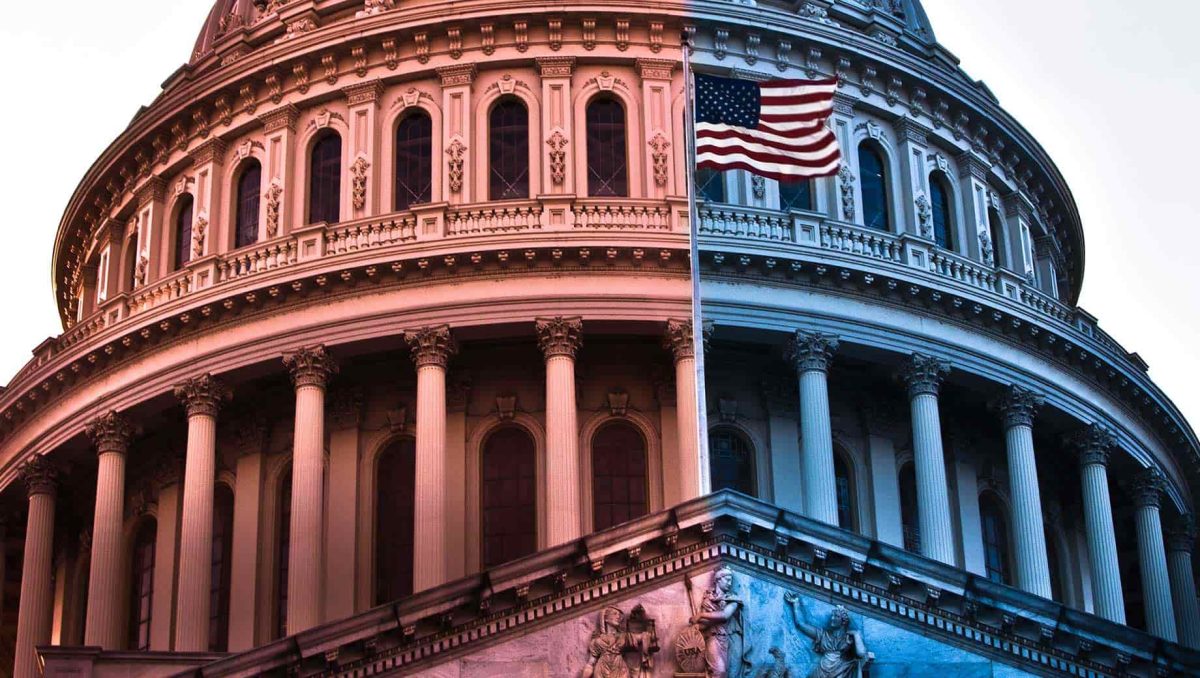The United States of America is portrayed across the world as a country founded on freedom, liberty, and widespread patriotism – and while some of that is true, is it selectively true? But when did this great illusion stop being our reality? Have the promises of the country come true for its people? To many, it seems that it hasn’t – however, most have slightly differing reasons as to why they believe it hasn’t.
These diverse thoughts are essentially our political beliefs and opinions. In our electoral system, there are only two prevalent political parties – the Republicans and the Democrats. While these two parties have a very big tent in each of their respective political positionings between the left and the right, they are both commonly divided by who they run on the national stage and in most congressional & local elections. After the 2024 general election, it seems as though the current positions of both respective parties is that the Democratic Party is currently run by an unpopular, neoliberal leadership and is attempting to appeal to neoconservative & moderate right people despite that group still supporting the Republican Party, which is seemingly remaining stagnant in their overall political agenda as a Party. However, some GOP members of Congress and candidates for various levels of office have adopted a further right-wing approach to politics, which resulted in this force becoming a more prevalent one in the Party’s membership. A core factor of the influx of Republican voters can be associated with them appealing to those who do not typically vote or who usually vote for third parties like the Libertarian Party or the Green Party, two of the most notable third parties in American politics who do not have representation in either chamber of Congress.
On the other hand, the Democratic Party has attempted to try and gain the support of the more moderate members of the Republican Party who are typically considered neoconservatives. The neoconservative bloc of the GOP has remained loyal to the Republicans, citing many of the further left policies of certain Democratic politicians. However, in the grand span of political beliefs, the Democratic Party is very center-left, commonly avoiding even mentioning those who are moderate leftists and even going as far as to banish further left candidates through often criticized primaries or by forcing them out of the Party.
The illusion of the American people choosing different sides over and over is unrealistic, as many will stick to a Party if they choose to register with them. A grand majority of these types of voters will almost always vote for any candidate that is the nominee of their registered Party, even if they politically disagree with that candidate on one or more issues. These people, typically deemed party loyalists, do not usually stray from their Party’s slate of candidates, no matter the candidate’s personal beliefs. For example, in the 2024 New Jersey election for the U.S. Senate seat vacated by former Senator Bob Menendez (D), which is now held by interim Senator George Helmy (D), who was appointed by Governor Murphy in August. Many registered Republicans who were politically aligned further to the right than the Republican nominee, Curtis Bashaw (R), still voted for him as he was closer to their beliefs than the Democratic nominee, outgoing House Representative, Andy Kim (D), because of his more left-leaning stances compared to the national Democratic Party, along with his experience as a House Representative for New Jersey’s 3rd district.
However, Democrat Andy Kim won this election by a larger margin than the Democratic Presidential candidate, Kamala Harris potentially due to his more left stance, as appealing to typically left-out voters resulted in higher turnout and motivation to vote in that election compared to the Presidential election. While select candidates continue to push for appealing to new blocs of the people’s beliefs, therefore attracting new voters to their campaign, other candidates from both sides most often will stick with the traditional way of doing things and stall any sort of progress in their party by running on already-done policies and repeating the same lines every election cycle. This stalling of progress can very easily lead to a sealed fate in an election cycle, as a majority of registered voters are registered Independents. This means that they are not loyal to one party or another, and so the two main parties will desperately attempt to pander to these Independent voters, often mistaking them all as centrists, who are a split-down-the-middle group of voters who typically never vote down-ballot for any one Party due to differences in beliefs from candidates.
In reality, most Independent voters are not centrists, and many of them just have various beliefs that are not well represented by either Party enough to become loyal to one or the other. Some voters choose to associate with a third party, like the aforementioned Libertarian and Green parties. There are also several other third parties out there such as the Party for Socialism and Liberation and the Constitution Party, among various others that only have ballot access in certain states due to a lack of membership. The lack of membership and often also funding leads to an inability to fund ballot access, promotion, or even hire necessary campaign staff. Oftentimes, even main-party political campaigns can end up in debt, such as Kamala Harris’ 2024 presidential campaign, which raised $1.4 billion in just 107 days, and ended up with around $20 million in campaign debt. This issue is much more prevalent in third-party campaigns, where a majority of campaigns only receive mere hundreds or thousands of votes when it’s all said and done, and will often be unable to fund the bare minimum campaigns that they have to run – which naturally leads a campaign into debt.
This often repeating cycle in our politics of failed promises, ineffective campaigns, and disproportionate representation often leads to low voter turnout due to a lack of motivation to go out and vote. According to statistics by the University of Florida’s Election Lab, only about 64% of eligible voters voted in the 2024 general election. With many people being open about their dislike of both major candidates this election cycle, we also saw some record performances from third-party candidates such as Green Party nominee Dr. Jill Stein, who was able to secure 18% of the vote in Dearborn, Michigan – a city with a large Arab population, who often criticized Harris for the Biden administration’s handling of the ongoing conflict in Gaza. Dr. Stein was also able to secure 0.9% of the vote in New Jersey and 0.5% of the vote nationally, showing that many who were unsatisfied with the main party nominees still voted, although they voted for third-party candidates.
While the Green Party could not beat their record for their most successful presidential ticket this time around, they still saw an overall good performance based on their past electoral results from recent years. To date, the Greens’ most successful presidential ticket was in the 2000 election, where their ticket of Ralph Nader and Winona LaDuke, secured 2.74% of the vote nationwide against Democratic nominee Al Gore and Republican nominee George W. Bush. Despite winning nearly 3% of the national popular vote, the Electoral College did not award a single electoral vote to the ticket. Throughout American political history, not a single third-party presidential ticket has secured even one electoral vote in any election, with the exception being the 1788 and 1792 elections, where Independent George Washington won unanimously both times.
This proves the warning that President Washington gave us during his farewell address in 1796, saying that “However [political parties] may now and then answer popular ends, they are likely in the course of time and things, to become potent engines, by which cunning, ambitious, and unprincipled men will be enabled to subvert the power of the people and to usurp for themselves the reins of government; destroying afterward the very engines which have lifted them to the unjust dominion.” This was more than just a simple farewell speech, it was a warning that was intended to protect our democracy, which was ignored as in the elections immediately after, the first two American political parties – the Federalists and Democratic-Republicans – were formed.
While Washington attempted to warn us from the very beginning, America instead chose a different path – and while, as Washington said, the system did initially allow for more diverse representation in some cases, it would quickly become a machine designed to turn genuine democracy into a popularity contest filled with misinformation, bias, and division – which we see in today’s politics in America now more than ever before. The degradation of our sacred democracy isn’t “for the people” either, as politicians and major political parties and organizations use this system to their advantages, often accepting what could essentially be boiled down to outright bribes in the form of legalized “campaign contributions” which have become severely deregulated following the Supreme Court decision on Citizens United v. FEC, which reversed several campaign contribution regulations which were put in place to protect the integrity of political candidates and campaigns and to prevent what is essentially legalized bribery from occurring in the American political system.


